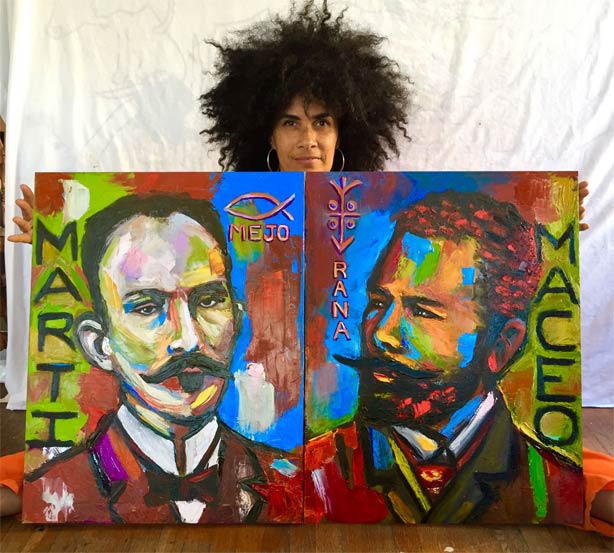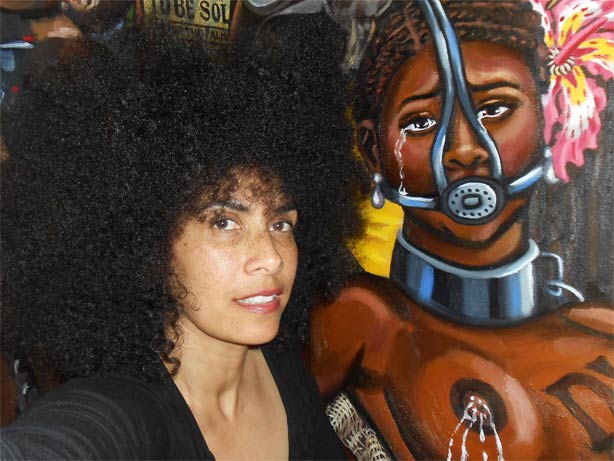|
|
 |
Maceo y Martí: La Mejorana,
2017.
Oil on Canvas, 28″ x 44″ |
LILI BERNARD is a
Cuban-born, Los Angeles-based interdisciplinary artist of mixed African,
Caribbean, European and Chinese descent. Her work examines issues of
sexism, racism and trauma. A mother of six whom she birthed in a ten-year
span, Lili is an award-winning exhibiting fine artist, actor, published
writer, independent curator, educator, community organizer, public speaker
and founder of BAILA: Black Artists in Los Angeles. Raised predominantly
in Princeton, Jct., New Jersey, and a graduate of The American School in
Japan where she spent 11th and 12th grade, Lili attended Cornell
University and The City University of New York, earning a B.A. in German.
She received her MFA in Visual Arts/Public Practice from Otis College of
Art and Design.
In the fine arts, Lili’s
numerous credits include a 2017 solo exhibition at Museum of African
Diaspora and favorable reviews in a multitude of mainstream art
periodicals, including ARTnews Magazine. As an actor who has performed
extensively in NYC Off-Broadway theatre, on television Lili starred in the
BBC film Murder in Oakland, co-starred in Stephen King’s Golden Years, and
guest-starred on Seinfeld and The Cosby Show. A Cosby survivor-turned
public-figure antirape activist, Lili influenced the abolishment of the
statute of limitations on rape prosecution in California with her
#EndRapeSOL peers, as well as the gubernatorial signing of three #MeToo
bills on employment sexual harassment and assault. Currently, she serves
as co-chair of #ERAnow.
|





